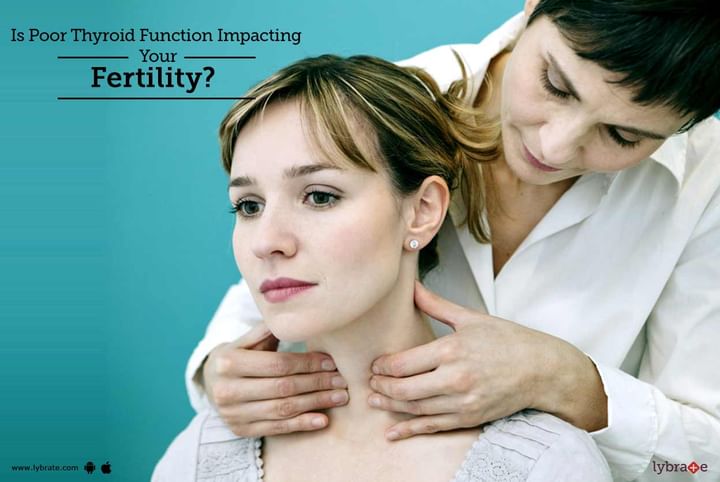Is Poor Thyroid Function Impacting Your Fertility?
The human body works as directed by the various hormones released by the endocrine system. These hormones are essential for coordination of various body functions. From the height a person achieves to the metabolic reactions in the body to the reproductive cycle to the stress levels a person can handle, all are hormone controlled.
Pregnancy is another critical, complicated phase that a woman goes through. It is one of the most awaited phases in a woman’s life; however, it is not very simple either. The above-noted hormones play a major role in this pregnancy, as the baby is dependent on the mother for its initial supply of hormones until it can start producing its own hormones. If the baby does not receive the require amounts, there could be various detrimental effects during development and post birth.
Hypothyroidism or an underactive thyroid is extremely common in women and there are multiple theories about how hypothyroidism can affect a woman’s chances of getting pregnant. While the correlation between hypothyroidism and pregnancy are quite well researched, a strong connection stating hypothyroid women being not able to be pregnant is yet to be proven.
The following are some correlations between hypothyroidism and pregnancy.
Increased chance of miscarriage: Women with reduced thyroid functions have double the chances of having a miscarriage. Women suffering from thyroid are at a risk of recurrent miscarriages during the first trimester. The chances of miscarriages during the second trimester are also about 40% higher in hypothyroid women. These women are also at a risk of:
- Premature labour
- Low birth weight
- Increased chances of stillbirth
- Maternal anemia
- Postpartum hemorrhage
- Developmental defects and/or delays in the newborn
- Placental abruption
- High blood pressure
One of the reasons identified for infertility in women is hypothyroidism. This range varies from 1% to 40% and so remains to be proven still. In addition, the hypothyroid mother will have a set of symptoms to live through, which may be further complicated given the pregnancy. Thyroid replacement should be religiously done and monitored to ensure TSH levels are at the optimal required levels (2.5 to 3 mIU/L) during the entire duration of pregnancy.
If you have the following, be sure to go through a comprehensive thyroid screening before and during pregnancy.
- Family history of thyroid
- History of thyroid dysfunction or goitre or thyroid antibodies
- Clinical signs and symptoms suggestive of hypothyroidism
- History of repeated miscarriages
- History of head and neck radiation
- Family/personal history of autoimmune disorders
While it still remains to be proven that hypothyroidism per se can stop a woman from being pregnant, there are definitely effects of hypothyroidism on the developing child and the mother. A comprehensive screening and close monitoring through pregnancy are extremely essential.



+1.svg)
